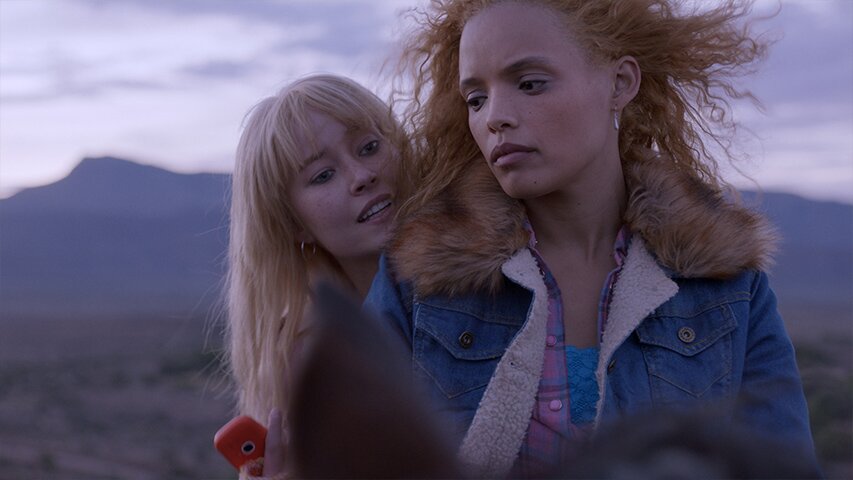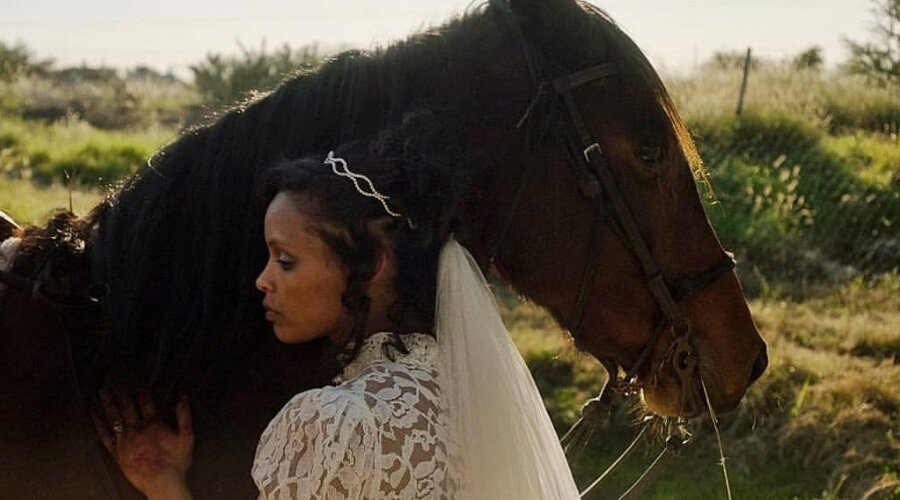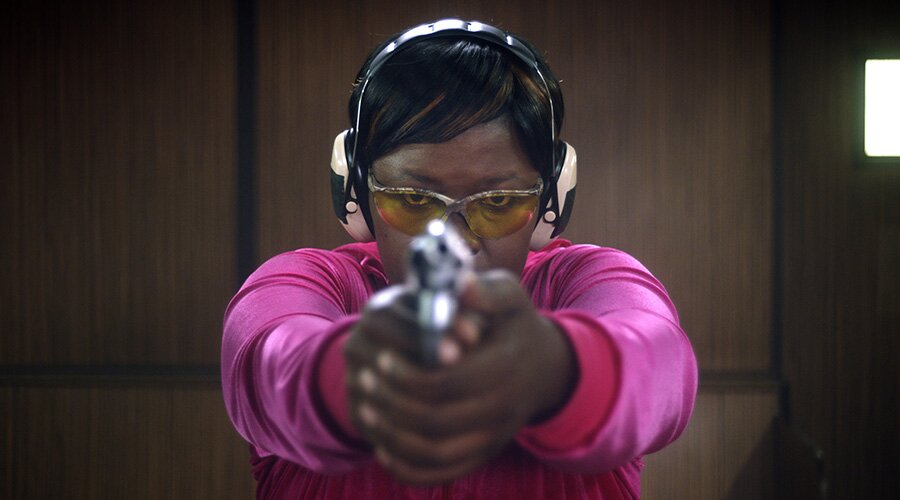The film looks at complex questions and injustices, offering no solid conclusions or happily ever-afters.

Next month, Flatland, the new film by Jenna Bass, opens in cinemas.
The unique, contemporary drama is a tale about self-discovery for three different but equally trapped women – a pregnant teenager, a young bride and a middle-aged cop – played out against the backdrop of the Karoo.
With its darkly comic Western flavour, Flatland takes the viewer on a journey through the surreal Badlands of the Great Karoo, wide open skies and vast plains, the land so flat, “you can see your future rolling in”.
It’s a land that has been fought over, vilified and torched for centuries. The film opens with a wedding ceremony in a church between skittish, virginal bride Natalie Jonkers (Nicole Fortuin) and her policeman groom, Bakkies Bezuidenhout (De Klerk Oelofse) in the boondocks of Beaufort West.

Izel Bezuidenhout and Nicole Fortuin in ‘Flatland’. Picture: Flatland Productions
What follows is an odyssey. Grieving her dead mother, Natalie flees her new husband, seeking the comfort from her horse and armed with her husband’s firearm for self-defence.
She ends up on the run, Thelma and Louise style, with heavily pregnant childhood friend Poppie van Niekerk (Izel Bezuidenhout). After a night of binge drinking, they plan to flee to Johannesburg, the city filled with gold and opportunity.
Questioning issues of race, class and gender, Flatland is a portrait of femininity set against the backdrop of a hostile frontier land, that interrogates what it means to be a woman today – in South Africa and the world at large.
Bass introduces the audience to marginal communities on the fringes of the social group, which further add to the dislocation and fragmented sense of identity throughout the film. In the traditional Hollywood Western, male cowboys on the frontier forge ahead into the wild west.

Nicole Fortuin in ‘Flatland’. Picture: Flatland Productions
Bass’s vision offers us the “post-Western, the conquered, colonised land reverting back to lawlessness”, and in the place of cowboys, she offers a menagerie of cowgirls, convicts who moan that they don’t belong and a young police officer who hides behind his retired father in a shootout.
Flatland is the third feature from writer-director Bass, who also co-wrote the Kenyan Cannes headline grabber, Rafiki.
“I have long wanted to make a Western set in the Karoo,” says Bass. “I love the drama, action and locations of the traditional Western. The unwritten rule of Westerns is, however, that they are for men and by men.
“Flatland is the opposite – it’s a feminist post-Western in which the women reject the conformities of a heteronormative life. Each woman is raw and authentic in her own way,” Bass says. “In making the film, we deferred to each of the actresses and encouraged them to own their characters.”

Faith Baloyi in ‘Flatland’. Picture: Flatland Productions
The story interrogates life in communities on the margins, where there is a sense of the land returning to lawlessness, which is what made Beaufort West an ideal setting. It became its own character.
The film looks at complex questions and injustices, offering no solid conclusions or happily ever-afters.
Combined with composer Bao-Tran Tran’s pulsating electronic beats, the film’s composition supports the feminist subversion of the Western genre and floats the spectator towards a climactic ending.
Shot by international cinematographer Sarah Cunningham, it takes the audience into SA’s dry interior region, emphasising dusty roads, distant mountains and endless sky.
For more news your way, download The Citizen’s app for iOS and Android.






